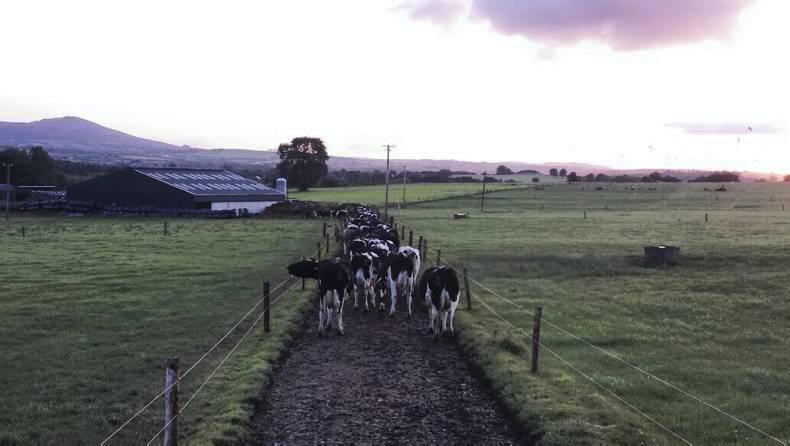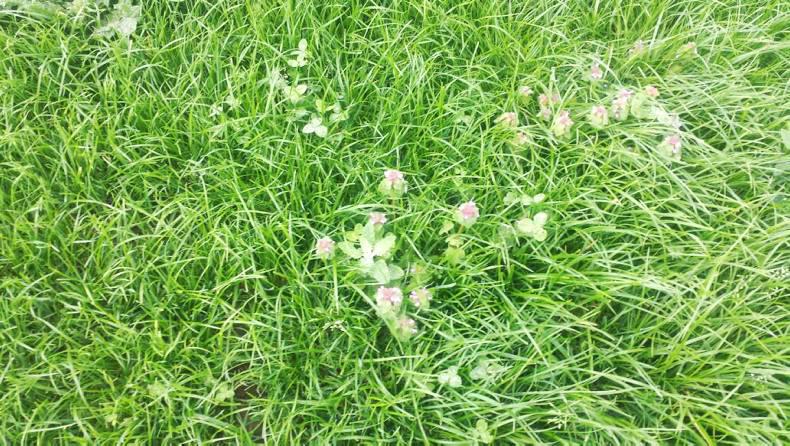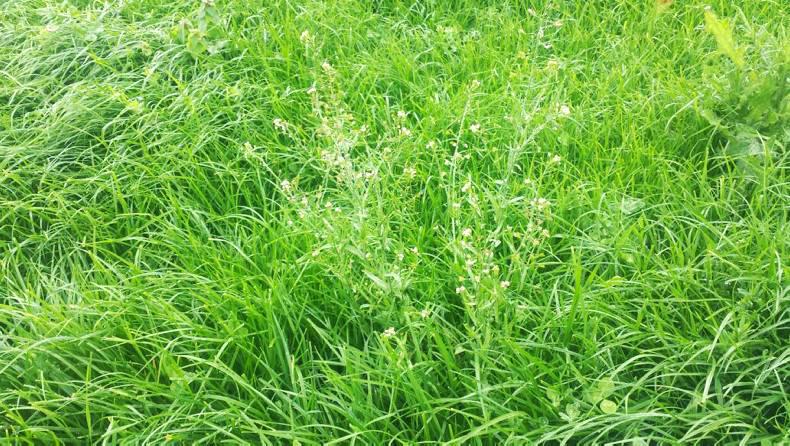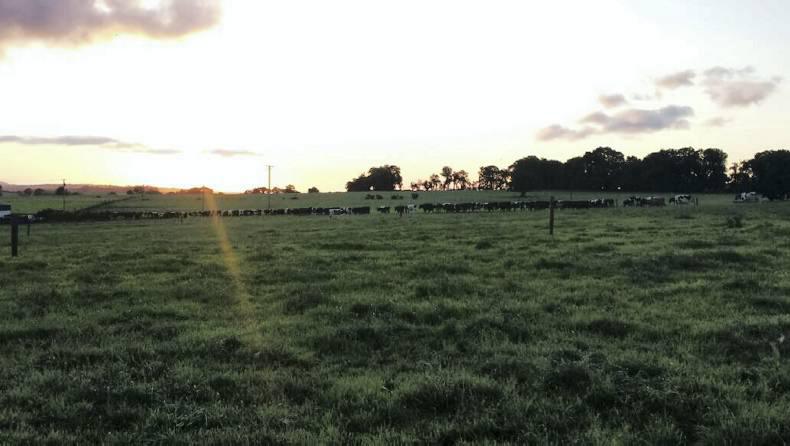This week we grew 86kg per day, bringing the farm cover to 731kgs, which is 204kg a cow. With the broken weather last week and very heavy rainfall, grazing conditions became difficult and some light damage was done in places over the few days.
With so much rain, machinery work has been minimal. This has its problems as there is a list of paddocks I would like to cut for silage. I will have more joining them this week if the growth stays this high, as our demand is at 65kg and my cover per cow is on the high side - I'd rather be operating at around 160kg/cow cover.
On the other side, the rain had its good points, the reseeds we set 8 days ago are now up and growing and the mild wet conditions seem to be perfect for it. Some chickweed is starting to appear, so we must keep an eye on it to spray it off as soon as possible.
Cows are starting to slip a little in milk at the minute. We are holding them at 21 litres at 4.1% fat and 3.6% protein. I expect protein to rise as there is very good quality grass ahead of the cows for the next rotation.To date, after doing our milk recording, our cows have produced 300kg milk solids each on average and our heifers were at 262kg milk solids. We are reasonably happy with this as our target is 500kg, but I think it will be a stretch to reach it.
High cell count cows drafted out
As I mentioned last week, our SCC was up to 195 the previous week. I now have it down to 120 and it should drop again. After we got our milk recording results, I drafted any cow or heifer that had a cell count of 300 plus out of the main herd and we now have a second herd running on the block. The reason for this is that I wanted to confine all high SCC cows and stop the spreading. It seemed to work OK.
Out of that second herd, I have dried off three cows for culling - these were the major problem ones. I have culture-tested the other cows to find the bug and I'm treating them accordingly. This might sound a bit severe to some people, but in a very young herd it is easier to do it now than face a bigger problem later down the line.
The rest of the week's jobs will be to give a pour-on to the in calf heifers and calves. If the weather picks up at the end of the week, hopefully bales will be made and I'll try to spray the reseeds that we did in the spring as they're starting to get a bit dirty.
I will be following the cows for this round with 40kg of pastures ward starting on Friday as we did not spread any fertiliser in the last round.

Red deadnettle in the reseeds on Ciaran Fogarty's host farm

Shepherds Purse in the reseeds on Ciaran Fogarty's host farm
Ciaran is a second student in the Professional Diploma in Dairy Farm Management course run by Teagasc and accredited by UCD. He is working on the farm of Adrian Power, Kilmacthomas, Co Waterford.






 This is a subscriber-only article
This is a subscriber-only article













SHARING OPTIONS: